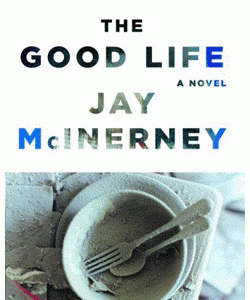Fight Club, Lolita, and 1984 Among Top Film Adaptations
The Guardian, the British newspaper founded in 1821, recently compiled a list of the top fifty film adaptations of books.
Jump to navigation Skip to content
The Guardian, the British newspaper founded in 1821, recently compiled a list of the top fifty film adaptations of books.
On a frigid night in early March, a well-dressed crowd of around five hundred people piled into the New School’s Tishman Auditorium to witness the announcement of the winners of the National Book Critics Circle Awards. The membership organization of seven hundred critics and reviewers, founded in 1974, bestows awards annually for poetry, fiction, biography, general nonfiction, and criticism. This year, for the first time, autobiography (or memoir), was added as a separate category—an interesting distinction at a time when the controversy over the genre has dominated literary news.

Perhaps no single book details the excesses of the 1980s—in particular the debauchery of the New York City social scene—better than Jay McInerney’s Bright Lights, Big City (Vintage Books, 1984). The author’s commercially successful debut novel was adapted into a movie, starring Michael J. Fox and Keifer Sutherland, in 1988.

The second annual Story Prize ceremony, held at the New School’s Tishman Auditorium in late January, began like most literary events in New York City—with much chattering among publishing folk, rising in volume until the lights went down and a hush descended on the room. The evening’s format was simple. The three finalists, fiction writers Jim Harrison, Maureen F. McHugh, and Patrick O’Keefe, would each read from their books and then sit for a short discussion with Larry Dark. In 2004 Dark, the former O. Henry Prize Stories series editor, launched the prize with Julie Lindsey in an effort to promote a genre they believed was underrepresented by other literary awards. The winner of the first annual prize was Edwidge Danticat for The Dew Breaker (Knopf, 2004).
For those who don’t mind Hollywood versions of great literature, a new series of novels packaged with the DVD recordings of the films they inspired allows for a side-by-side comparison.
Joining the ranks of literary contests that have failed to yield a winner, Winnow Press is the latest sponsor to announce that the manuscripts received for their First Book Award were not up to par; they are, however, offering something of a consolation prize.
The University of Georgia Press recently revoked the 2004 Flannery O’Connor Award for Short Fiction given to Brad Vice of Starkville, Mississippi, for his short story collection, The Bear Bryant Funeral Train, which was published in September 2005, after learning that one of the stories contained uncredited material from Carl Carmer’s Stars Fell on Alabama, a book of nonfiction published by Farrar & Rinehart in 1934 and later reprinted by the University of Alabama Press.
Can political fiction matter? Stephen Elliott, the editor of Politically Inspired, an anthology published by MacAdam/Cage in 2003, and its follow-up, Stumbling and Raging: More Politically Inspired Fiction, published by MacAdam/Cage this month, casts his vote in the “definitely yes” column.